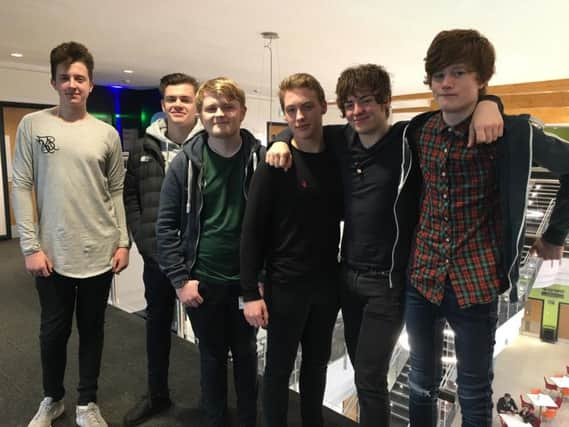Yorkshire college says more men in caring roles could tackle skills shortage


A recent report by UK Commission for Employment and Skills (UKCES) warned that the demand for staff will far outstrip availability in the next few years for both the NHS and social care – with two million more workers needing to be trained and recruited by 2022.
But East Riding College has been attempting to tackle the shortage by encouraging more male students to enrol on courses.
Advertisement
Hide AdAdvertisement
Hide AdAs a result, it has reported an 82 per cent rise in the last year despite the industry being traditionally dominated by women – with men only making up 21 per cent of employees in the sector across Yorkshire and the Humber.
Mark Keen, head of curriculum area for health and social care, said: “It’s important to encourage more young people and especially males into the caring professions as there is demand from employers across the sector.
“Health and social care courses can lead onto higher level study at college or university, or training in professions such as nursing and social work.”
Six male students studying at the college’s Beverley campus are Alex Monkman, Callum Kirkwood, Connor McKiniry and Corie Brady, all aged 16, Harvey Broughton, 17, and Ben Elliott, 18.
Advertisement
Hide AdAdvertisement
Hide AdThey have enrolled on level two and level three Health and Social Care to take their first steps towards a future in the healthcare professions.
Harvey said: “When I was at school I did work experience at a day care club for people with learning disabilities and in a care home for the elderly and I found both very rewarding. Then when I was going to see my grandad in hospital, it made me appreciate the kind of jobs that we’re learning to do. I found it really interesting and wanted to do it myself.”
Connor is hoping to be a physiotherapist, while Ben wants to study adult nursing at university. Alex plans to become an A&E nurse and both Callum and Cory want to be counsellors.
Callum said: “There’s lots of career choices with this course, it will help us all get to where we want to be.”
Advertisement
Hide AdAdvertisement
Hide AdThe group said they had faced sexism in the sector, but they were determined not to let it put them off.
Callum added: “At first I was a little bit uncomfortable, but you’ve just got to get on with it because this is what you want to do. In college it’s not an issue, but, to be honest, elsewhere I try to avoid discussing it because people judge you. Someone came up to me and said it’s a girls’ course. It’s quite sexist that they would hold that view, but that’s their opinion, I don’t care what they think, this is what I want to do.”
Harvey said he did not know why people assumed it was a female profession.
“If someone was thinking about a healthcare profession, but was unsure, I’d say throw yourself in, try it out,” he said.
Advertisement
Hide AdAdvertisement
Hide AdMr Keen added: “These students make some excellent points about the perceptions of care roles and demonstrate how varied a sector it is.”
For more information about studying health and social care, East Riding College’s next open event is at its Bridlington campus tomorrow from 4pm to 7pm.